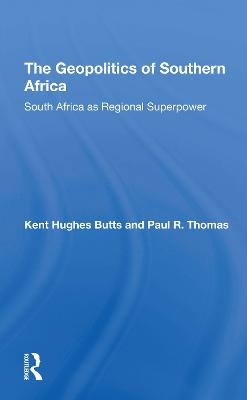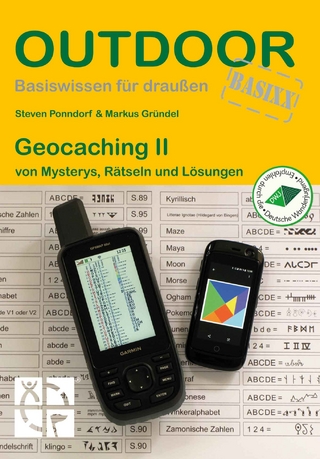
The Geopolitics Of Southern Africa
South Africa As Regional Superpower
Seiten
2021
Routledge (Verlag)
978-0-367-30797-4 (ISBN)
Routledge (Verlag)
978-0-367-30797-4 (ISBN)
This book examines the economic and geographic factors that contribute to asymmetrical relationships and examines the pluralism that divides South African society, focusing on the major geopolitical variables affecting South Africa's ability to sustain power.
South Africa is the dominant force in an area that is of increasing strategic importance to the West, yet few studies address the geopolitical pressures that dictate the course of events there. Analyzing South Africa’s base of power, the authors argue that because South Africa’s relationships with other states in Southern Africa are asymmetrical in nature, the country has substantial economic and political leverage in the region. Control of Southern Africa’s transport infrastructure and the ability to project a conventional or surrogate military presence throughout the region, for example, gives South Africa the power to affect the economic and political stability of virtually all regional states. Asymmetry also characterizes relationships at the global level. Because the West depends upon South Africa for access to the region’s strategic minerals, for the security of the Cape oil route, and for the country’s ability to counterbalance the Soviet presence in Southern Africa, South Africa exercises considerable influence over the African foreign policies of the superpowers. Focusing on the major geopolitical variables affecting South Africa’s ability to sustain power, the authors analyze the economic and geographic factors that contribute to asymmetrical relationships and examine the pluralism that divides South African society. Pretoria’s successful foreign policy, which has created a security corridor of new buffer states, is given particular emphasis. In addition, the authors provide a detailed analysis of South Africa’s minerals-based economy and discuss the implications for regional stability of economic sanctions against South Africa. Finally, they outline a policy framework that takes regional economic, political, and geographic realities into account.
South Africa is the dominant force in an area that is of increasing strategic importance to the West, yet few studies address the geopolitical pressures that dictate the course of events there. Analyzing South Africa’s base of power, the authors argue that because South Africa’s relationships with other states in Southern Africa are asymmetrical in nature, the country has substantial economic and political leverage in the region. Control of Southern Africa’s transport infrastructure and the ability to project a conventional or surrogate military presence throughout the region, for example, gives South Africa the power to affect the economic and political stability of virtually all regional states. Asymmetry also characterizes relationships at the global level. Because the West depends upon South Africa for access to the region’s strategic minerals, for the security of the Cape oil route, and for the country’s ability to counterbalance the Soviet presence in Southern Africa, South Africa exercises considerable influence over the African foreign policies of the superpowers. Focusing on the major geopolitical variables affecting South Africa’s ability to sustain power, the authors analyze the economic and geographic factors that contribute to asymmetrical relationships and examine the pluralism that divides South African society. Pretoria’s successful foreign policy, which has created a security corridor of new buffer states, is given particular emphasis. In addition, the authors provide a detailed analysis of South Africa’s minerals-based economy and discuss the implications for regional stability of economic sanctions against South Africa. Finally, they outline a policy framework that takes regional economic, political, and geographic realities into account.
"Kent H. Butts is a John M. Olin Fellow at Harvard’s Center for International Affairs. Paul R. Thomas is an international minerals economist"
Geopolitical Focus on Southern Africa -- Economic Interdependence -- Pluralism: The Domestic Challenge -- New Buffer States: South Africa’s Regional Policy -- South Africa’s Mining Industry: Mainstay of the Economy -- Sanctions: A Double-Edged Sword -- Policies with Promise
| Erscheinungsdatum | 02.06.2021 |
|---|---|
| Verlagsort | London |
| Sprache | englisch |
| Maße | 148 x 233 mm |
| Gewicht | 380 g |
| Themenwelt | Naturwissenschaften ► Geowissenschaften ► Geografie / Kartografie |
| Sozialwissenschaften ► Soziologie ► Spezielle Soziologien | |
| ISBN-10 | 0-367-30797-9 / 0367307979 |
| ISBN-13 | 978-0-367-30797-4 / 9780367307974 |
| Zustand | Neuware |
| Haben Sie eine Frage zum Produkt? |
Mehr entdecken
aus dem Bereich
aus dem Bereich
über eine faszinierende Welt zwischen Wasser und Land und warum sie …
Buch | Hardcover (2023)
dtv (Verlag)
24,00 €
von Mysterys, Rätseln und Lösungen
Buch | Softcover (2024)
Conrad Stein (Verlag)
10,90 €


